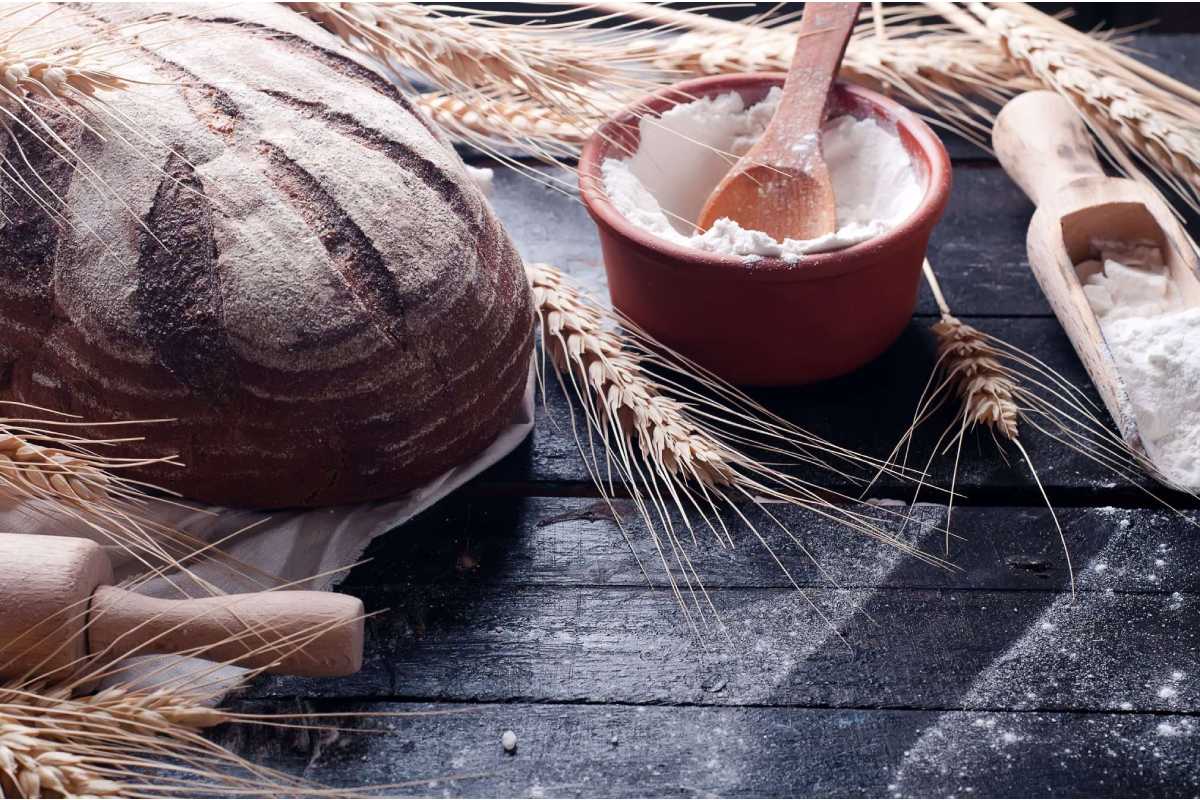

One of the best things about being gluten free in the modern age is the sheer variety of gluten free flour that you have access to, either in the supermarket or local specialty store. From various types of nut flour to flour made from non-wheat grains, you certainly have a lot of different types of flour to choose from – and they come packed with nutrients too!
However, these different kinds of gluten free flour all vary in taste, texture, and method of preparation – which can get a little confusing. Here is a handy guide to some of the most popular gluten free flours to help straighten things out for you.
Table of Contents
There are two types of rice flour: brown rice flour, which is ground from rice that still has the bran and germ attached, and white rice flour, which is ground from white rice. White rice flour is widely available and is light in colour and flavour. Meanwhile, brown rice flour is higher in dietary fibre and quickly catching up to white rice flour in popularity. Both types are good for all-rounded baking, as well as thickening soups and sauces.
Oat flour is another reliable, versatile flour that can be used for various purposes. It is a good contender for wheat flour substitution in baked goods, especially breads and cookies. It also works very well when mixed with other gluten free flours to get the right consistency. Oats are naturally free of gluten, although it is very important that you read the packaging to ensure that there is no cross-contamination with any other types of wheat-based flours.
Made of ground almonds, almond flour is another popular gluten free flour. Given how ground nuts are considered a mainstay in baked goods, almond flour is particularly good for baking. While it can be tricky to substitute almond flour in for normal wheat flour, there are fortunately plenty of good baking recipes available that already have almond flour as the main flour ingredient.
Chickpea flour is made from raw ground chickpeas and can add a lovely nutty flavour to any recipe. You can use chickpea flour in savoury dishes or those that have a strong flavour like chocolate or spice to complement the underlying chickpea flavour. Due to how dense chickpea flour is, you should use them in recipes that call for a strong structure, like tortillas, flatbreads, crepes – or even making meatloaf and pasta.
Eaten on its own, quinoa is textured and delicious; in flour form, quinoa flour is equally tasty. Quinoa flour retains the grain’s nutty flavor, but in a subtle and complementary way while adding interest to any dish. One of the best things about quinoa flour is how versatile it is. It can be used in both sweet and savoury recipes. It is excellent for baking cake and cookies as well as breads and muffins.
Hemp flour is pressed and milled from hemp seeds and is one of the most interesting gluten free flours. That is because hemp flour is actually brownish green in colour, and boasts a distinctive nutty taste and smell. Give your baking a boost by using hemp flour in cakes, bread, and cookies, or use it to crumb meats and thicken stews. It also carries the same health benefits as hemp seeds and oils.
Chia seeds are a popular vegan method of replacing eggs in recipes due to its gel-like texture when mixed with water – and now we have chia flour as a gluten free substitute for wheat flour! Made of finely ground chia seeds, chia flour offers the advantage as it has such a subtle flavor while adding a powerful nutritional punch. Add it to your baking – whether for breads or muffins and cakes – for beautiful light, fluffy texture.
Do not be afraid to mix and match when it comes to gluten free flour. You may find that one type of flour does not do well as a substitute on its own, so feel free to add it to another type of gluten free flour. Lastly, experiment! Make the most of the variety at your fingertips and see for yourself which flours work best in certain recipes. Hopefully, these tips have given you enough information to get started and find your own favorite gluten free flour!
In the relentless pursuit of entrepreneurial success, it’s easy to overlook the most vital asset—yourself.… Read More
A barrel sauna isn’t just a visually striking wellness addition—it’s an efficient and highly functional… Read More
Technology is an integral part of most teenagers' lives today. While devices and social media… Read More
LASIK is one of the most popular vision correction surgeries that offers you freedom from… Read More
Plumbing issues can arise unexpectedly, and understanding the costs involved is crucial for homeowners and… Read More
Skin aging is often associated with external factors like sun exposure and pollution, but inflammation… Read More